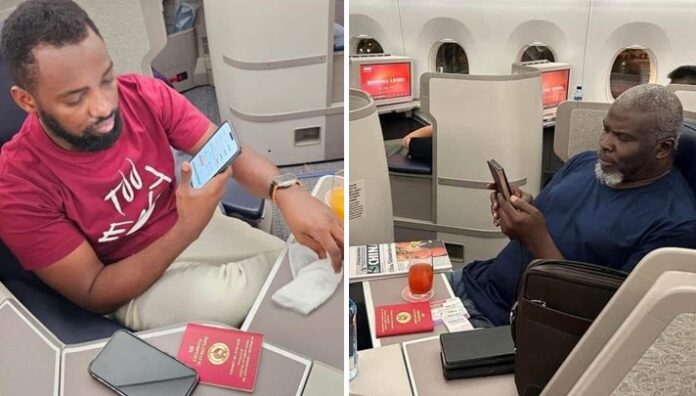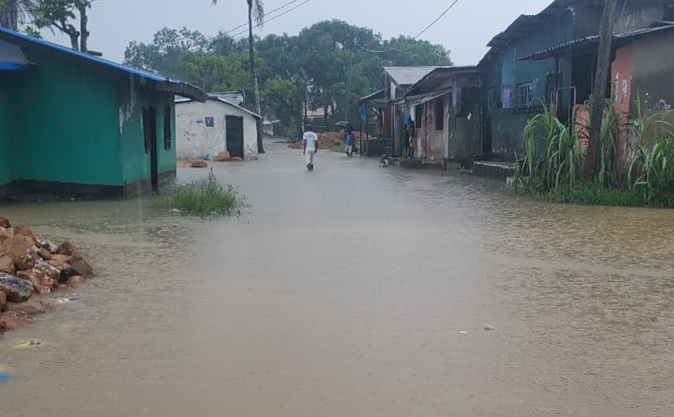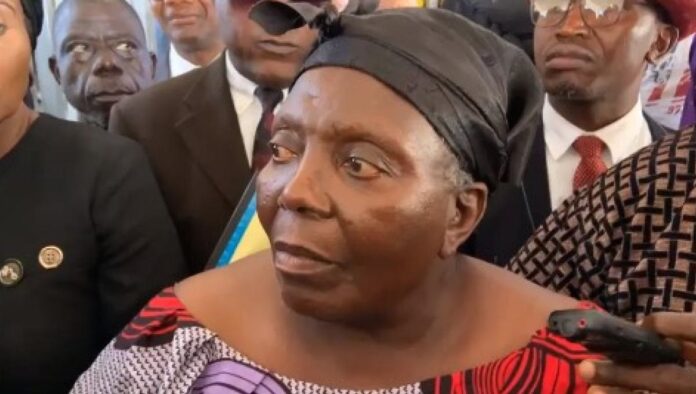MONROVIA, LIBERIA – In a striking turn of events, President Boakai’s administration has come under fire for practices reminiscent of the previous ruling government, the Coalition for Democratic Change (CDC), which he had once vehemently condemned. During his tenure as the opposition leader, President Boakai criticized former President George Weah and his administration for flying first class, vowing to put an end to such extravagances and promising a transparent government during his 2023 presidential campaign. However, less than seven months into his administration, President Boakai appears to be deviating from these promises.
Civil society activist Martin Kollie has voiced strong criticism of President Boakai’s current approach, describing it as “business as usual.” In a pointed statement titled “Boakai’s Officials Flaunt Being in First Class with Liberian Diplomatic Passports,” Kollie expressed disbelief at the continuation of opulent practices under the new administration. “We criticized this under the CDC-led government. We are also criticizing it now. If it was wrong yesterday, it is also wrong today. This was never what we promised our people. We never promised OPULENCE. We promised economic freedom for ALL Liberians,” Kollie wrote.
The criticism comes after images surfaced showing President Boakai’s Envoy on Investment, Mr. Mohammed Maladho Bah, and Ambassador-At-Large for Tourism, Mr. Christopher Onanuga, traveling in first class using Liberian diplomatic passports. This has sparked outrage, given Liberia’s status as the world’s eighth poorest country in 2024, according to Global Finance. Kollie pointed out that whether or not these luxury trips are funded by the government, they project an image of insensitivity amidst widespread suffering in Liberia.
Adding to the controversy, Mr. Bah has a prior conviction for theft by Stipendiary Magistrate Jomah Jallah, while Mr. Onanuga was indicted by Global Witness over the Sable Mining Scandal in Liberia. These revelations have intensified the scrutiny on President Boakai’s administration, with Kollie questioning if this is not merely a continuation of the previous administration’s practices. “Is this NOT business as usual? Is the economy still in the toilet or has it left from there? I think it is now in the septic tank,” Kollie remarked.
The backlash highlights the growing discontent among Liberians who had hoped for significant changes and improved governance under President Boakai. As his administration faces mounting criticism, the promise of economic freedom and transparency remains a pressing issue for many citizens. The coming months will be crucial in determining whether President Boakai can realign his administration’s actions with the pledges that garnered him support during the election campaign.
Political analysts warn that if President Boakai fails to address these concerns, he risks losing the trust of the electorate that propelled him to power. The perception of hypocrisy and broken promises could have long-term implications for his administration and the Unity Party as a whole. As the country grapples with economic challenges, maintaining public confidence is paramount for effective governance and national stability.
Moreover, the situation raises broader questions about accountability and reform within Liberia’s political landscape. The continued practice of flying first class by government officials, despite previous criticisms, underscores a persistent culture of privilege that many citizens hoped to see eradicated. Calls for greater transparency and adherence to campaign promises are growing louder, signaling a critical juncture for President Boakai’s leadership and the future direction of the nation.







